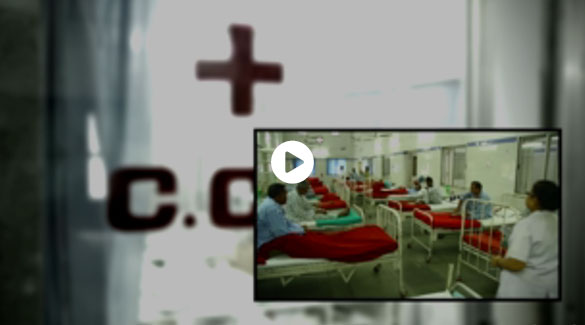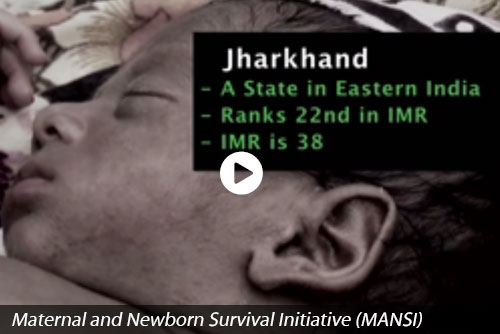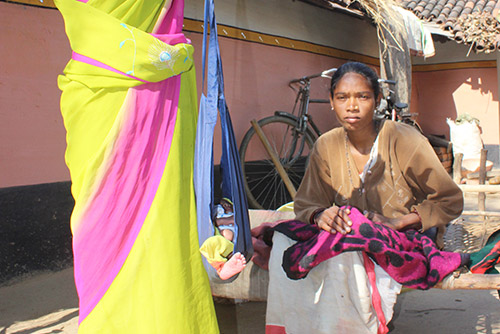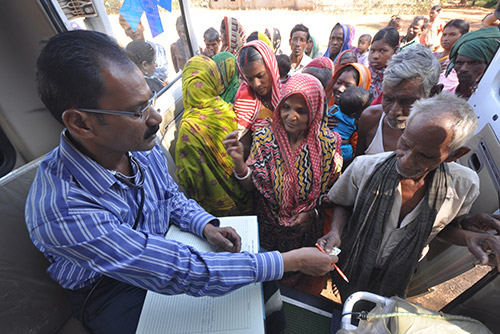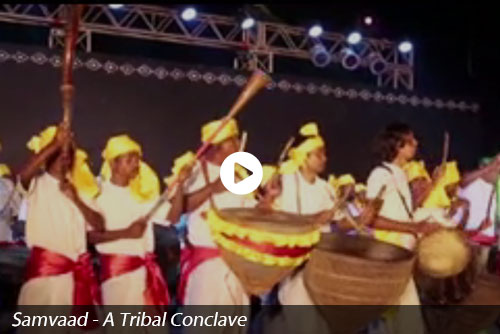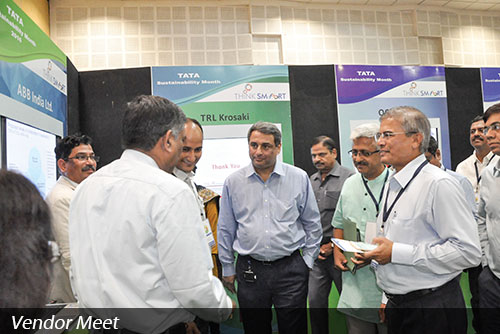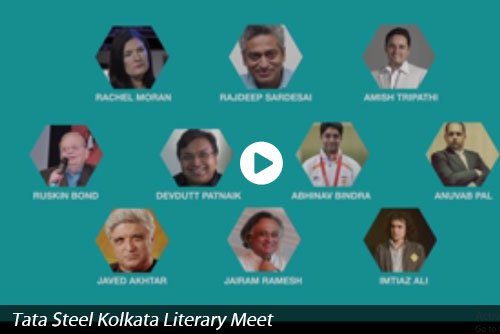Social and Relationship
Social and Relationship capital represent co-operative ties between a Company and different communities and stakeholders' groups that engage with each other for societal welfare.
“In a free enterprise, the community is not just another stakeholder in business but is, in fact, the very purpose of its existence.”
— OUR FOUNDER, JAMSETJI NUSSERWANJI TATA
₹204 crore
spent on Corporate Social Responsibility activities during FY16.
SOCIAL CAPITAL
Approach
Social capital for us has always been of paramount importance. It is manifested in the form of formal and informal institutions and associations established and supported by the Company to serve the cause of the Nation, the States where we have operations, the local communities and the surrounding ecosystem. We endeavour to conduct our business responsibly, mindful of our social accountability, respect the law of the land where we operate and with regard for human dignity.
Our approach to CSR is guided by the CSR and the Affirmative Action policies. Over a period of time, our social initiatives have evolved from being focused on “giving to society” to “creating an enabling environment” and presently, with empowered communities willing to participate in partnering with us to “create self-sustained communities”. Long before the law mandated corporates to incur CSR expenditure, we have been spending approximately 2-3% of our profits on community-centric initiatives.
During the year, we spent ₹204 crore on societal activities. We also strongly encourage our employees and partners in fostering a sense of social commitment for stakeholders through various volunteering programmes and projects guided by the Tata Group.
Governance
We have a CSR Advisory Council that comprises of eminent personalities from the academia and the development sector which meets annually with our senior management. The members of the Advisory Council, with their years of experience and multi-functional expertise, provide deep insights on improving the effectiveness of our CSR initiatives.
Our CSR Committee (sub-committee of the Board of Directors) oversees and reviews our CSR initiatives. An Apex CSR Steering Committee, chaired by the Managing Director and comprising the senior management team, reviews the activities and monitors achievements against targets set at the beginning of the year.
Social Context
Our operations are largely confined to areas that have a sizeable population, primarily scheduled caste and scheduled tribes, who are socially and economically marginalised. Government interventions alone cannot improve the socio-economic conditions of the local community. We, therefore, share the responsibility of meeting the needs of the local community through thematic interventions, designed in line with our vision.
CSR: Areas of Operation
We shoulder the responsibility of meeting the needs of the local community in and around our manufacturing locations through various delivery arms the details of which are available in the CSR Report annexed to the Directors' Report.
Our areas of operation for CSR include: In Jharkhand - Noamundi, Manoharpur, Jamadoba, West Bokaro, Jamshedpur. In Odisha - Kalinganagar, Gopalpur, Joda, Bamnipal, Gomardih.
CSR Model for creating value for the community
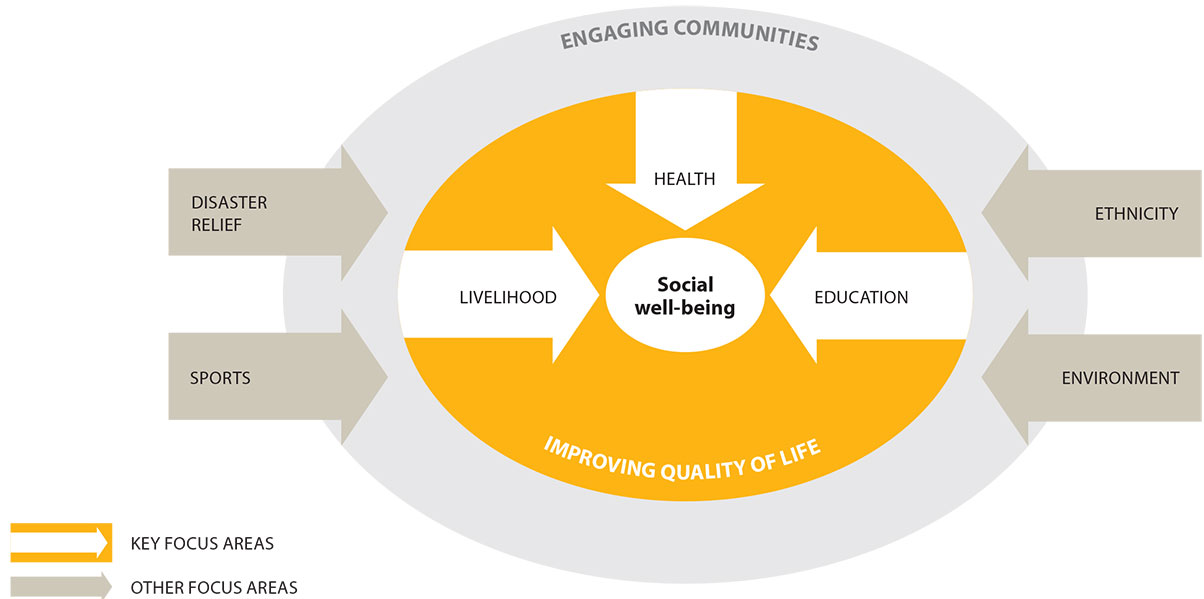
KPIs and Key Achievements:
Our CSR activities are aligned with the Company’s business objectives. Based on the Business Objectives and Strategy, the areas of priority are:
Livelihood – through agricultural development, skill development and entrepreneurship;
Health – through primary healthcare, maternal and child healthcare, specialised healthcare and adolescent health programmes;
Education – through improving the quality of education for all and scholarships for meritorious students;
Empowerment – through grassroots institutions such as Self Help Groups and Village Committees and youth empowerment.
1.1 mn lives touched
In FY16, our interventions had a positive impact on 1.1 mn lives.
Key Performance Indicators
| Thematic Intervention | Sub Strategy | UoM | FY13 | FY14 | FY15 | FY16 |
| Agricultural Development | Farmers adopted SRI1 Process | Nos. | 250 | 2,200 | 5,948 | 8,350 |
| Area under 2nd and 3rd Crop | In Acres | In Acres 3,177 | 5,032 | 5,510 | 5,086 | |
| Entrepreneurship | Business Volume of AA Vendors | (₹ crore) | 20.3 | 29.5 | 30.8 | 39 |
| Health | MANSI Project – Infant Mortality2 | - | 53.6 | 50.4 | 39.4 | 32.7 |
| MANSI Project – Neonatal Mortality2 | - | 40.7 | 32.6 | 27.4 | 22 | |
| Primary Healthcare Beneficiaries | Nos. | 3,72,000 | 4,19,000 | 4,85,384 | 5,33,597 | |
| Cataract Operations | Nos. | 2,890 | 5,230 | 6,198 | 4,099 | |
| Education | Fellowships | Nos. | 2,477 | 3,169 | 3,567 | 2,985 |
| Irrigation | Ponds Created | Nos. | - | 92 | 426 | 200 |
1 System of Rice Intensification.
2 No. of deaths (< 1 year) per 1,000 births. Figures correspond to calendar year. Vital Rates Survey for 2015 is underway.
Key Achievements
Community-centric initiatives based in the areas of priority have progressively changed the quality of life of the communities. We present below some of our key initiatives and achievements.
LIVELIHOOD
1. Agricultural Development
The agricultural economy in the states is
plagued by dependency on nature, low
investment, low productivity, inadequate
irrigation facilities and mono-cropping
with paddy as the dominant crop. In
accordance with the goal of adopting
climate-resilient agricultural practices that
can increase productivity we carried out
the following –
Paddy Cultivation: To increase paddy yield, we trained over 8,300 farmers in Jharkhand and Odisha to adopt the System of Rice Intensification (SRI) method of paddy cultivation. The average yield has gone up from 0.5 tonnes/acre to 2.1 tonnes/acre. 40% of the farmers who have adopted SRI paddy cultivation are from the SC/ST communities. SRI method aims to increase rice yield through a low-water, less labour-intensive method. SRI technology also addresses climate change by reducing the methane gas emissions from the paddy fields by up to 60%.
Vegetable Cultivation: Efforts aimed at diversifying agricultural produce have led to over 4,200 farmers adopting vegetable cultivation as their second or third crop.
Irrigation: Attempts to increase the area under irrigation and reduce the dependence of farmers on monsoons resulted in 202 structures being constructed, including ponds, check dams and lift irrigation facilities.
Farmer-Scientist Interface: The second edition of ‘Vaartaa – An Agriculture Meet’ was held in Jamshedpur and Gopalpur. The meet brought farmers and experts on a common platform to facilitate exchange of knowledge and best practices in agriculture. Overall, about 1,200 farmers attended the agriculture meet.
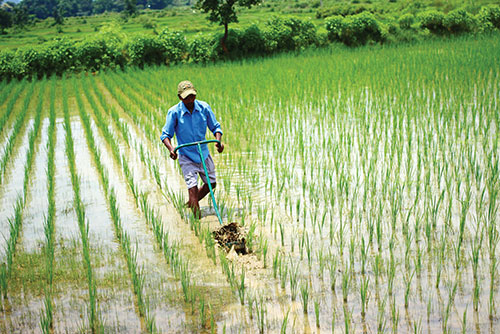
1,132 youth employed
In FY16, 1,573 youth out of 3,089 enrolled completed our skill development programmes.
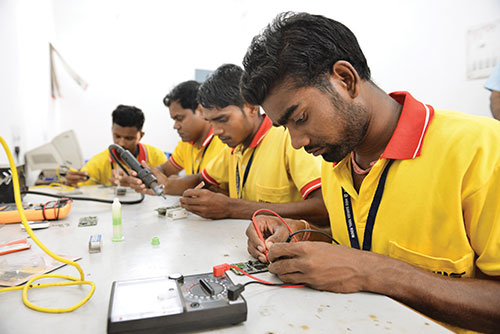
2. Skill Development
Lack of employable skills deprives
scores of youth of gainful employment
opportunities. We offered skill
development training courses through
(i) Institutes run by Tata Steel Skill
Development Society,
(ii) Institutes that receive infrastructural
support from us and
(iii) Courses offered at select institutes.
All of these courses are meant to prepare unemployed youth to find employment in diverse fields such as construction, automobiles, motor driving, call centres, hospitality, apparel designing, nursing, etc.
HEALTH
1. Infant Mortality
In partnership with the government health
system and not-for-profit organisations’
working on health, we have been working
on Maternal and Newborn Survival
Initiative (MANSI) Project in 167 villages of
Seraikela-Kharsawan district in Jharkhand.
This has reduced the neonatal mortality
rate by 46% and infant mortality (up to
one year of age) rate by 39% (Source:
Vital Rates Survey conducted by SEARCH,
Gadhchiroli).
In FY16 several districts and blocks of Jharkhand and Odisha were covered under Project MANSI.
2. Hospitals in Odisha
Work is underway for the setting up of a
500-bed hospital at Gopalpur and a 200-
bed hospital in Kalinganagar. Sankara Eye
Hospital is also setting up a 100-bed Super
Speciality Eye Care Hospital in Ganjam.
5,70,000 people aided
Primary healthcare services to nearly 5,70,000 people through static clinics and mobile medical vans offered in Jharkhand and Odisha.
3. Adolescent Health Programme
Project RISHTA on adolescent health
reached out to over 23,000 adolescents
in Jharkhand and Odisha to enable them
to make informed decisions and choices
about their sexual and reproductive health.
4. Primary and Specialised Healthcare Our static clinics and mobile medical vans offered primary healthcare services to nearly 5,70,000 people in Jharkhand and Odisha, including those in far-flung areas of the two states. Over 30,000 patients availed specialised healthcare services from our multi-specialty health camps. Antenatal and postnatal check-ups benefitted over 7,800 women, while the immunisation drives covered 8,900 children. Free hospital-based surgery was provided for over 4,000 cataract patients who were identified through eye camps organised in rural Jharkhand and Odisha.
EMPOWERMENT
1. Irrigation
Lack of irrigation facility in water-scarce
regions adversely impacts farmers.
Harvesting rainwater through the
construction of ponds has helped
overcome this challenge. We partnered
with the village community in making
the rainwater harvesting a reality. This has
yielded three benefits: (i) empowering
the rural community, (ii) giving people a
source of livelihood and (iii) giving them a
voice in their growth story. A village pond
is not merely a water harvesting structure.
Its utility extends beyond irrigation, with
pisciculture, community building and
multi-cropping being associated with it.
With planning and technical advice, a pond
is a sustainable water resource that has
multiple benefits for the rural community.
Youth Empowerment
Sports: Over 44,000 youth and kids,
especially from Jharkhand and Odisha,
participated in different sporting events.
2 Jharkhand teenagers, found positions
in the prestigious Tata Football Academy
(TFA). 4 tribal boys trained at TFA were
recruited by an infantry of the Indian Army.
Leadership Camps: Over 1,500 youth were taken on outdoor leadership and motivational camps in Uttarakhand.
ENTREPRENEURSHIP
1. Affirmative Action
Our support of the Affirmative Action
Community includes an Affirmative Action
Vendor Development programme. The
procurement department focuses on
progressively improving the vendors’ share
of business from the SC/ST communities by training them to match the Company’s
requirements for various products and
services.
2. Rural Entrepreneurs
Capacity building programmes undertaken
to make Self Help Groups (SHGs) more
dynamic, organised and effective, covered
3,400 members of various SHGs in
Jharkhand and Odisha. During the year,
130 local villagers became entrepreneurs
benefitting from livelihood opportunities
offered by us in collaboration with
Bharatiya Yuva Shakti Trust at Kalinganagar.
EDUCATION
With an aim of equitable and quality education, our interventions span all levels of schooling, i.e. from elementary school education to the high school level. The Thousand Schools Project in Odisha is aiming to improve the standard of education in government schools in three backward tribal districts i.e. Jajpur, Keonjhar and Sundargarh.
The Thousand Schools Project comprises a huge capacity building exercise, including staff orientation, training of teachers and youth, training and exposure visits of School Management Committees (SMC) and members of Panchayati Raj Institutions.
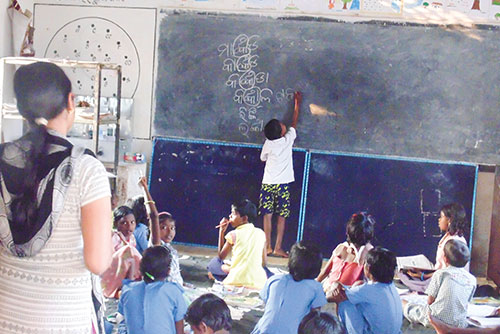
Thousand Schools Project
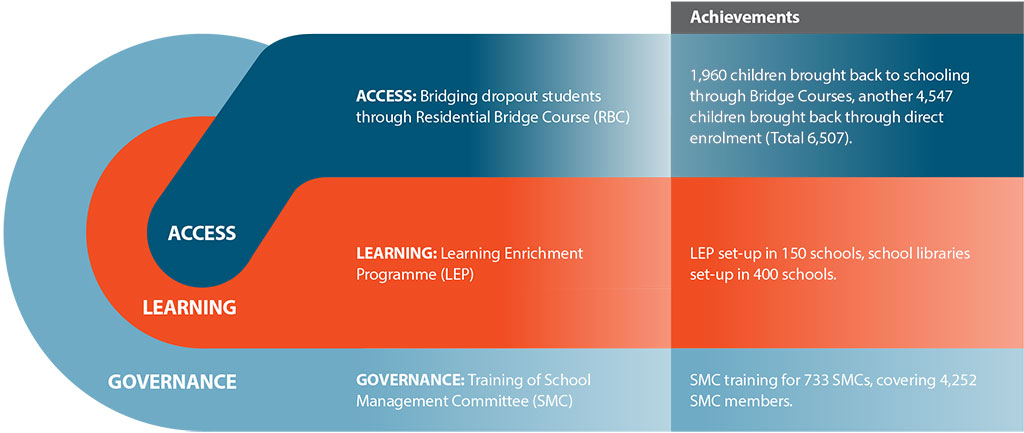
As part of the Affirmative Action agenda -
- We granted two fellowships viz., the Jyoti Fellowship and Moodie Fellowship to over 2,800 meritorious SC/ST students from economically-challenged families in Jharkhand and Odisha.
- The Tata Steel Scholars initiative helped 83 bright SC/ST students from low-income families realise their academic dreams.
- Our preparatory coaching initiative has helped nearly 5,500 underprivileged school students in classes 8, 9 and 10 to hone their skills in subjects like English, Mathematics and Science.
- We provided nutritious meals to 49,000 students in 383 government schools of East Singhbhum and Seraikela Kharsawan districts to counter classroom hunger.
ETHNICITY
With the Company’s operations spread over areas populated by indigenous tribes, we consistently endeavour to work with these tribes to preserve and promote their culture and heritage.
of tribal culture and heritage. Around 1,500 tribal artists, academicians, eminent personalities and activists attended the event. The participants represented 35 different tribes from 20 states across the country. Samvaad showcased the cultural heritage of the tribal community through unique forms of tribal folk dances, panel discussions on tribal languages and literature, as well as paper presentations by research scholars. Around 15,000 youth have learned the scripts of Ho and Santali tribal languages since we launched over 300 language centres.
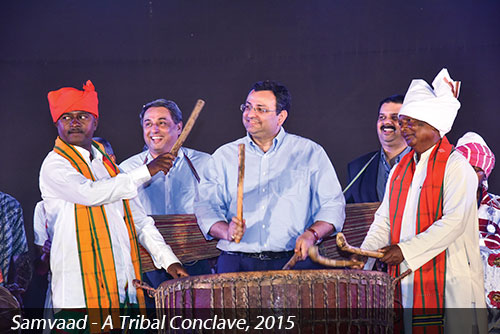
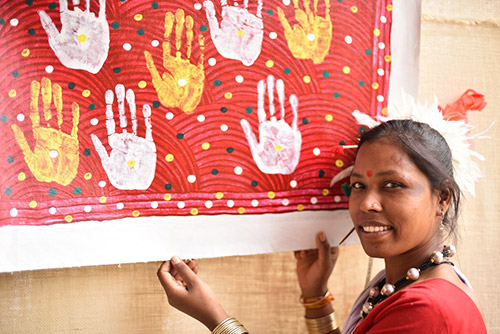
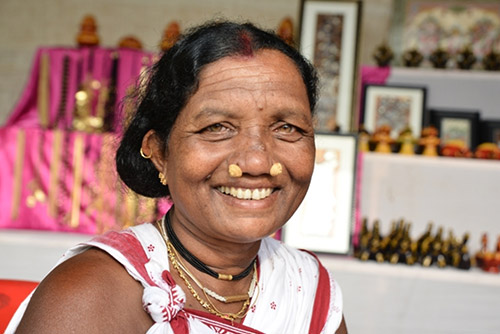
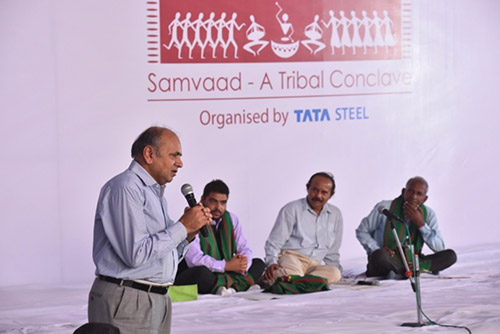
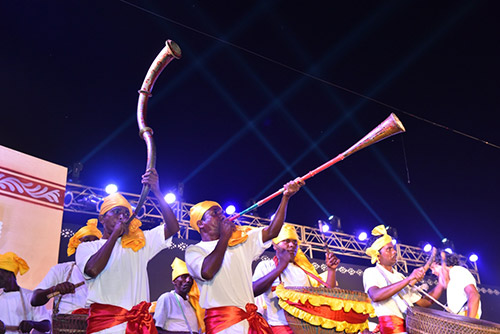
EMPLOYEE VOLUNTEERISM
We encourage our employees to volunteer for community-centric initiatives. In FY16, nearly 18,413 people contributed 26,290 hours and volunteered for a host of community activities and services during the Tata Volunteering Weeks held under the group-level Tata Engage initiative.
SPORTS
Our zeal to nurture sporting talent began in the early 1920s when the erstwhile Chairman, Sir Dorabji Tata sponsored the first Olympic team from India. In keeping with the legacy we set-up the Tata Football Academy. This academy runs training centres in at least 16 sports disciplines and 3 residential academies for football, archery and athletics. We have built an array of infrastructure matching international standards to support sports. In FY16, the Government of India awarded our employee Ms. Deepika Kumari a Padma Shri for her contribution to Indian Archery.
Over the years, our employees have won prestigious awards, like the Rajiv Gandhi Khel Ratna Award (1), Padma Shri (11), Dronacharya Award (5), Arjuna Award (40), Dhyanchand Lifetime Achievement Award (1), Olympians (34), Asian Games Medallist (26) and Commowealth Games (11).
We are the only Company in the country to have been awarded the Rashtriya Khel Protsahan Puruskar by the Honourable President of India in 2009 and 2010.
During the year, a total of 5,600 employees participated in sporting events, health & fitness and lifestyle management programmes. The Company’s training centres and academies engaged 1,601 trainees as part of its community outreach initiatives. Of them, 11 trainees got employment in Army and Jharkhand Police on the basis of their exemplary performance at National/ International events. Abiding by its Affirmative Action Policy, a total of 512 ST/ SC boys and girls were provided training in academies and training centres.
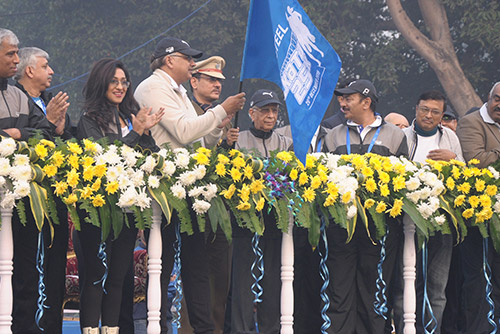
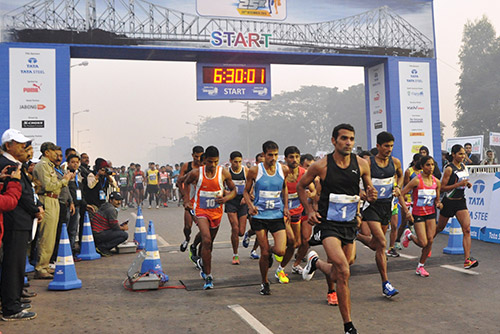
SOCIAL INVESTMENT IN KALINGANAGAR – AN AFFIRMATION OF INCLUSIVE GROWTH
Background
Our zeal to nurture sporting talent began in the early 1920s when the erstwhile Chairman, Sir Dorabji Tata sponsored the first Olympic team from India. In keeping with the legacy we set-up the Tata Football Academy. This academy runs training centres in at least 16 sports disciplines and 3 residential academies for football, archery and athletics. We have built an array of infrastructure matching international standards to support sports. In FY16, the Government of India awarded our employee Ms. Deepika Kumari a Padma Shri for her contribution to Indian Archery.
A total of 1,234 families were displaced due to the allocation of land towards the Project and these families were required to be resettled and rehabilitated. Our leadership team ensured development of an IT solution to systematically monitor the financial position, health situation and current occupation of each displaced family. Thereafter, each relocated family became a member of the Tata Steel Parivar, and was issued a tamper-proof identity card specially designed to contain all relevant details of the family. “A New Life – a New Hope” was the commitment given by Tata Steel through the Tata Steel Parivar Resettlement & Rehabilitation Plan.
Initiatives of the following areas have upheld the intent of inclusive growth by the 'Tata Steel Parivar'.
Civic Infrastructure
Three rehabilitation colonies were set-up at Trijanga, Sansailo and Gobarghati, each of which is equipped with all-weather, motorable roads, electricity, clean running water from taps, a well laid-out drainage system, community halls, recreation areas for children and designated spaces for religious ceremonies.
Primary Education and Scholarships
The most significant achievement has been the 100% enrolment in primary education in the schools set-up. Colony students have continuously excelled in the Matriculation Examinations. Since 2007, the Tata Steel Parivar Scholarship has funded the education of meritorious children.
Medical Facilities
A team of doctors, aided by paramedics, community health assistants and facilitators (Swasthya Mitras) provide round the clock, free medical services to 1,033 families in the three rehabilitation colonies, including pathological services and ambulance facilities.
Specialised healthcare is available at the hospital at Gobarghati Resettlement & Rehabilitation colony, and is assured via tie-ups with hospitals in Bhubaneswar and Cuttack. We hosted the Lifeline Express at Jajpur in 2010 and 2014, for the families in colonies and others from peripheral areas.
A 200-bed Tata-Medica Specialty Hospital is now being set-up at Kalinganagar.
Economic Rehabilitation
Economic rehabilitation is progressively taking place through:
- Technical training leading to employment in different industries and ancillaries.
- Training and engagement in non-farm based SMEs.
- Farm-based activities using traditional skills.
- Upgrading of skills leading to selfemployment.
- Nurturing entrepreneurship.
Training and Skill Development
We conducted an education and capability mapping of the local youth. Based on the findings, the following measures were carried out –
- In 2006 group training and skill development began in technical areas, computers and other skill development options.
- Nominees were handpicked for vocational training in trades like welding, plumbing, masonry, carpentry, bar bending, etc.
- Graduate nominees were absorbed as Office Associates in different Operational and Service departments, while matriculates took on the role of Operations & Maintenance Assistants.
- Those with no formal training were trained at the Central Tool Room & Training Centre, Bhubaneswar, through a two-year programme on steel making.
Employment in non-farm-based SMEs
We organised Self Help Groups to train and initiate women into thrift and credit, later leading to bank linkages. Exposure to Income Generation programmes like tailoring, pickle-making, poultry etc. enabled them to feel confident and empowered to take on projects to augment their family incomes.
Business opportunities
Contracts are awarded to members of the Tata Steel Parivar for services in areas like cleaning and maintenance of Resettlement & Rehabilitation colonies, housekeeping in the Company’s premises, waste disposal, water supply, grocery supplies etc.
Transformation
In less than a decade, our approach has led to significant transformation in Kalinganagar. Some key changes are as follows:
- Members have moved from living in thatched houses to multi-storeyed concreted homes. Members have gone from having no electricity connection or medical facility to round the clock access to electricity and medical facilities.
- Children who had dropped out of schools now have access to free quality education.
- Families who depended only on rain-fed agriculture have multiple sources of income including employment with the Company, contracts for work at the Company, alternate income for women through SHGs, business opportunities such as shops etc.
- Families enjoy food security due to the grocery maintenance allowance provided by the Company.
Focus Areas
Our future focus is to improve the effectiveness of our spends and seek support from the Government and other sources for our initiatives. Going forward we will be leveraging technology and innovation for our CSR activities in order to achieve greater impact in terms of reach and scale.
RELATIONSHIP CAPITAL
Approach
For us, Sustainability means another century of inclusive growth.
Our sustainability practices are guided by our Vision, Mission, Values, governance and sustainability policies so as to have an integrated approach to address the needs of People, Planet and Profits.
Through our values & ethical practices, we aim for mutual value creation by engaging with all stakeholders.
Stakeholder Engagement
We have three main categories of stakeholders:
The interaction with stakeholders is General (relationship building), Issue Based (related to specifics of projects or Consent to Operate) or revolves around communication of the Company’s Vision, Mission, Values, capability building, directions and expectations.
We have in place, active engagement mechanisms at the various stakeholder oriented functions, for example HRM (employees), Marketing & Sales (Customers, distributors and dealers), Procurement (Suppliers), CSR (Community), Corporate Communication (Media), Centre for Regulatory Effectiveness (Government and Bureaucrats), Planning departments (Steel Processing Centres).
We have entered into long-term strategic contracts with various utility providers for augmenting the requirements, for running the process or for upkeep of the township, e.g. Tata Power and Damodar Valley Corporation for power requirements of the plant and township, Linde for providing process oxygen, railways, road logistics providers, consignment agents for transportation, storage and handling of raw material and finished goods. For effectively meeting customer demands we have entered into contracts with external steel finishing factories called “Steel Processing Centres”.
We have also forged multiple collaborations with various prestigious academic and research institutes for procuring cutting-edge knowledge on various research and development initiatives in the areas of products and processes and for capability building in the area of Intellectual Capital.
The frequency and forum of engagement depends on the stakeholder and the nature of the concern. Our senior leadership also communicates and engages with the Government, Customers, Investors, Suppliers, Media, Regulatory Authorities, Employees & Unions, Thought Leaders and Community through various forums.
We strongly leverage technology in communication and actively use social media platforms to connect with a larger gamut of stakeholders, particularly on key corporate events and dissemination of key corporate updates.
As part of our sustainability practices, the stakeholder engagement process was reviewed by a large consulting firm during the Materiality exercise in 2013. The various stakeholders that we engage with, their concerns, and formal engagement mechanisms are listed in the table overleaf.
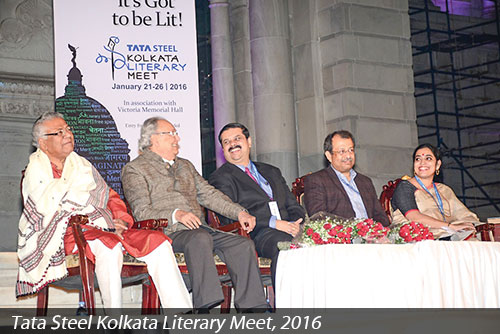

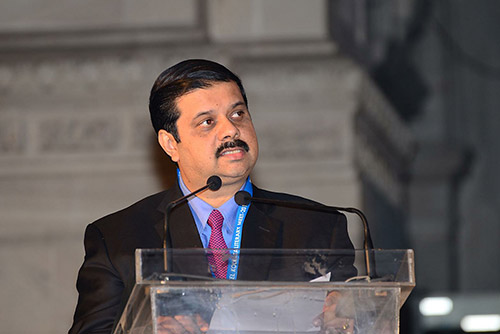
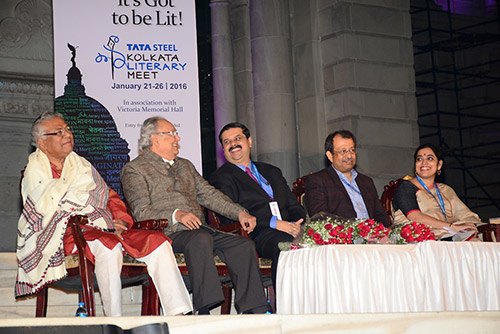
| Stakeholders | Impact | Concerns | Approaches for Engagement | Frequency of Engagement | |
| Human Capital | |||||
| Employees | Key workforce – engaged in production & services Unions are representatives of non-officers and help in maintaining harmonious industrial relations |
|
|
|
|
| Contract workforce | Support workforce – engaged in production & services |
|
|
Need-based | |
| Prospective Employees | New ideas, knowledge and experience from outside |
|
|
Yearly/ Need-based | |
| Financial Stakeholders | |||||
| Shareholders, banks, credit rating agency |
|
|
|
|
|
| Business Partners | |||||
| Suppliers, vendors, distributors and retailers | Support the business objectives of the Company |
|
|
|
|
| Regulatory Bodies | |||||
| Regulatory, Central and State Government Departments and Authorities | Regulatory matters, including various approvals, consents |
|
|
Need-based | |
| Communities | |||||
| Thought leaders, practitioners, local communities, opinion leaders and traditional chiefs | Social License to operate |
Socio- Economic
uplift through:
|
|
|
|
| Displaced Families | Social License to operate |
|
|
Ongoing | |
| Industry Associations | |||||
| World Steel Association, Confederation of Indian Industry, etc. | Support proactive engagement in policy–making and provide a platform for advocacy |
|
Meetings / seminars | Ongoing | |









